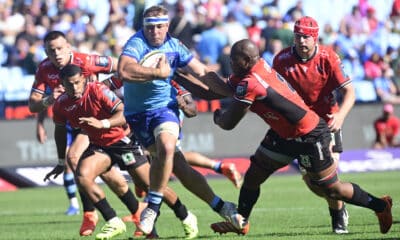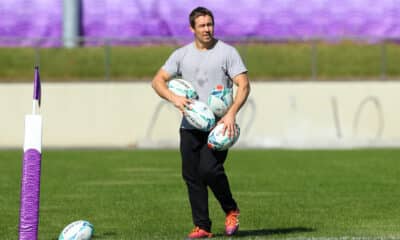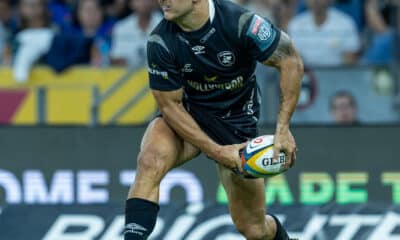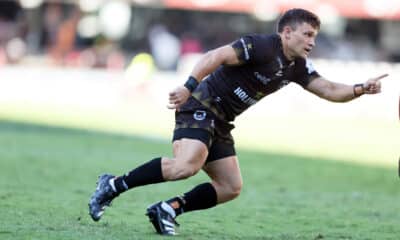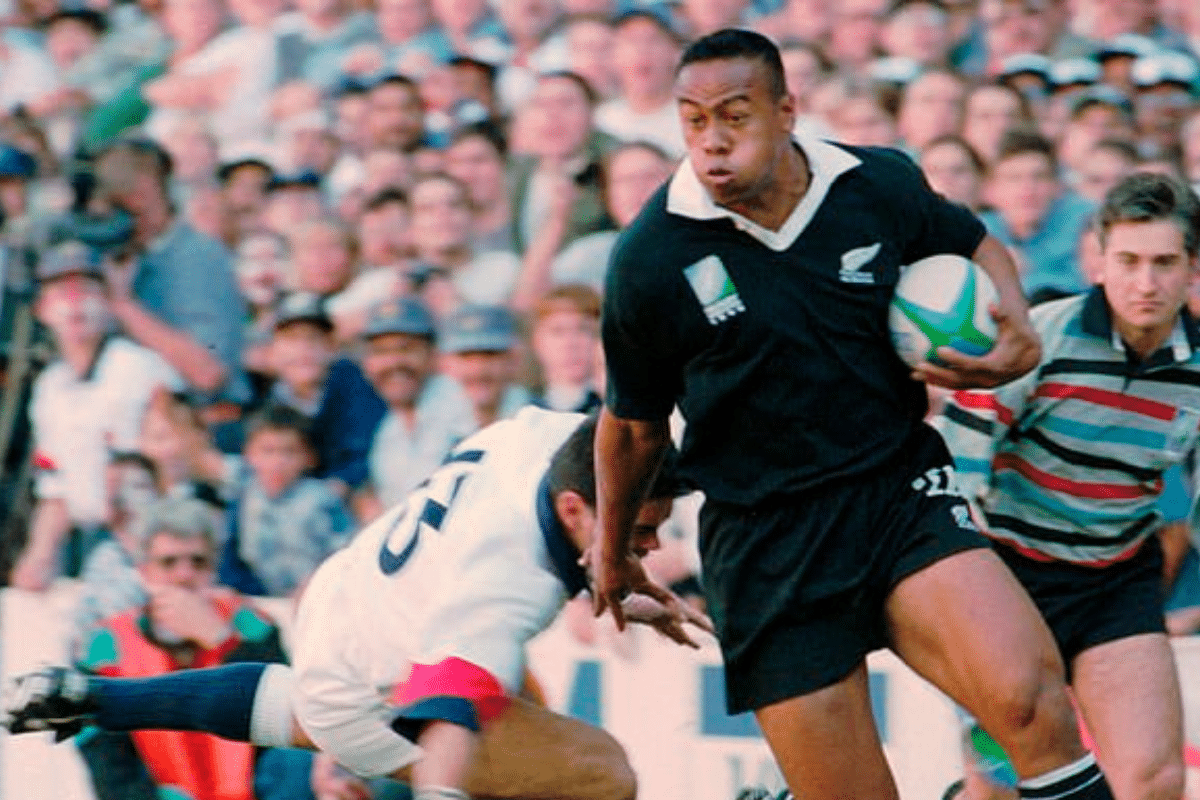
The Rugby World Cup is where legends rise and legacies are defined. Yet, global glory has eluded many of the greatest players of all time, writes Quintin van Jaarsveld.
For such giants of the game, the stars just never aligned for them to hold the Holy Grail of rugby – the Webb Ellis Cup – aloft. Chief among them are the following five phenoms:
Jonah Lomu
Lomu was an anomaly, a freak athlete who took the world by storm and became rugby’s first global superstar with his awe-inspiring tour de force in the 1995 tournament.
Never in the history of the game had there been a player with such an extraordinary combination of size, power and speed. Standing 1.96m tall and weighing 118kg, the herculean winger was larger than life in every sense and had an enigmatic aura as little was known about the 20-year-old.
The prodigious powerhouse was unstoppable in the All Blacks’ march into the final, scoring seven tries, four of which came in his legendary semi-final performance against England, which included his famous steamrolling of Mike Catt.
The whole of South Africa lived in fear of the human freight train in the week leading up to the decider, however, the Springboks – inspired by a united nation and some Madiba magic – managed to defend their line and record an epic 15-12 win in extra time.
Despite his struggles with a kidney disease and being a marked man, Lomu stamped his authority on the 1999 tournament as he romped to a record eight tries, two of which came in the shock 43-31 loss to France in the semi-final, to take his World Cup tally up to 15. To this day, he holds the records for career World Cup tries and tries in a single tournament along with Springbok legend Bryan Habana.
A once-in-a-lifetime athlete who operated in beast mode, Lomu was the ultimate game-changer and a transcendent titan.
Brian O’Driscoll
O’Driscoll is the greatest outside centre I’ve had the pleasure of watching and is widely considered as such. As talented as he was intelligent, he was a gifted genius who married silky smooth offensive excellence with masterful defence.
His understanding of space on both sides of the ball was unprecedented, his ability to unlock defences with deft touches matched not only by his brick wall shoring up of his channel but, more importantly, his defensive organisation of the entire backline. The latter is a requirement of today’s No 13s that can be credited to the Irish icon, who also had scintillating speed and a skillset unlike any other.
As decorated as they come, O’Driscoll is a Test centurion who captained Ireland 83 times and won the Six Nations twice, including a Grand Slam triumph in 2009, Ireland’s first in 61 years. He also went on four British & Irish Lions tours and captained the northern hemisphere all-stars on the 2005 tour of New Zealand.
He’d never come close to World Cup glory, though, despite playing in four successive tournaments between 1999 and 2011, with Ireland crashing out of the quarterfinals on three of those occasions and failing to progress out of the pool stage in 2007. Of some consolation is the fact that he’s one of very few players who have scored tries in four World Cups.
Christian Cullen
One of the most exciting and creative players in history, Cullen was a joy to watch and a nightmare to defend.
With him in the All Blacks No 15 jersey, teams had to rethink their strategies as he was able to carve out the type of counter-attacks only thought possible in video games.
A wizard and a visionary with great speed and even better footwork, the man known as “The Paekakariki Express” was a try-scoring machine, racking up 46 tries in 58 Tests, 10 of which were against the Springboks.
The lethal weapon only had one shot at winning the World Cup, in 1999, when he was bafflingly played out of position at outside centre and the New Zealanders suffered the aforementioned upset to France in the semi-finals.
Keith Wood
The Irish great was the quintessential hard-nosed hooker and one of the best to ever don a No 2 jersey. Wood was a bald pit bull with plenty of mongrel and a master of the dark arts.
Tough as nails, he relished physicality and thrived in the trenches, while he showed superb skills in open play and his fundamentals were fantastic, all of which led to him becoming the first recipient of the IRB International Player of the Year award in 2001.
“The Raging Potato” as he was affectionately known, played in three World Cups – in 1995, 1999 and 2003 – each of which saw Ireland eliminated in the quarterfinals but not without Wood carving out his place in history as the only tight forward to score four tries in a World Cup game, a feat he achieved in the 53-8 win over the USA in 1999.
Gary Teichmann
The list wouldn’t be complete without a South African and Teichmann was arguably the best Springbok to never win the World Cup. A man of honour, he exemplified the ethos of Springbok rugby, playing hard and fair.
Of the legends on this list, Teichmann is uniquely unfortunate as he never got the opportunity to play on rugby’s biggest stage. The athletic, hard-grafting eighthman made his Test debut three months after South Africa’s World Cup triumph on home soil and succeeded Francois Pienaar as captain the following year.
He’d go on to cement himself as one of the greatest Springbok captains ever, leading the men in green and gold to a record 17-match winning streak, which included a maiden Tri-Nations title in 1998.
In a cruel twist of fate and one of the most controversial decisions ever by a Springbok coach, Teichmann was shockingly omitted from the 1999 World Cup squad by Nick Mallett, marking the end of his 42-Test career.
Mallett has since admitted it was a mistake to drop the humble general, who would no doubt have served his country with distinction in the global showpiece.

















